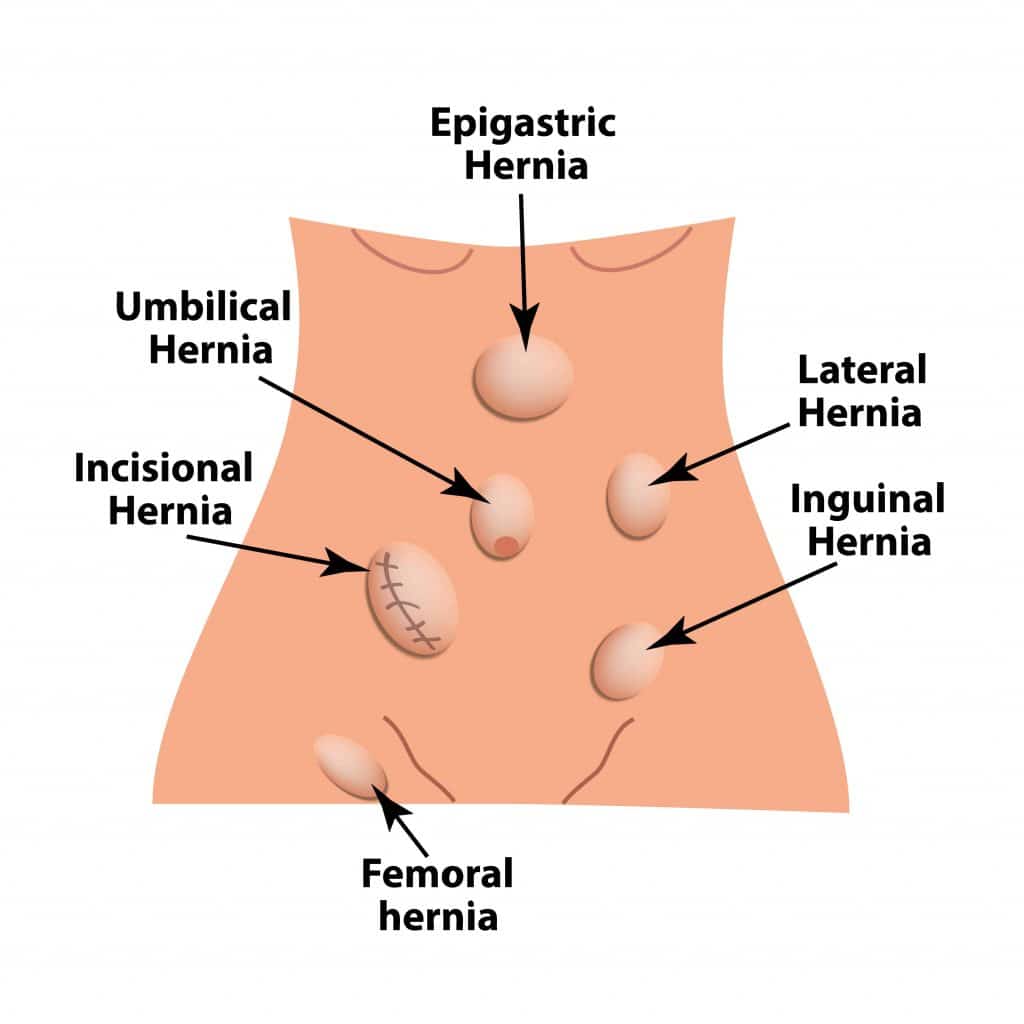What is Hernia?

If you’ve never had a hernia, count yourself among the lucky. If you ever had to ask the question, what is a hernia or have been recently diagnosed with a hernia, you probably aren’t feeling so lucky. A hernia can be a painful, bothersome condition that can affect how you live your life every day. Knowing what hernia is, how to recognize that you may have one, and how to treat it can make a person who has just been diagnosed with one feel just a little better.
Defining a Hernia
What is a hernia? Here is the definition. A hernia is a tear or a weakened area in the abdominal muscle wall. Your abdominal muscle wall holds all of your organs in place and helps protect them from external dangers such as a sucker punch to the stomach. When the wall develops a weakened spot or a tear, its ability to protect and maintain the placement of your organs also weakens and therefore is a hernia.
Symptoms of a Hernia
A hernia makes itself known by presenting symptoms to the unlucky patient. These symptoms range from mild to severe. The severity of the hernia symptoms helps determine the course of treatment.
One of the strongest hernia symptoms is pain. The pain is usually localized to a particular area in the front of the abdominal region or the groin, depending on where your hernia is. The pain can range from mild to severe. Eating certain foods, participating in excessive exercise, heavy lifting, or external trauma can worsen the pain. If, for any reason, you notice that your pain is suddenly worse than any of the pain you have felt thus far, seek emergency medical treatment as this can be a sign of a worsening condition.
Another symptom that indicates what you are feeling is a hernia is the swelling or ballooning of a particular area of your abdomen. This is caused by the internal organs pushing their way through your abdominal wall.
Complications Associated with Hernias
Many hernias do not need treatment and do cause the person any problems. However, there is a risk of complication should the hernia worsen.
One complication associated with a hernia is an incarcerated hernia. This occurs when a part of an organ becomes caught inside the hernia sack. This can lead to death if not treated immediately by surgery.
Another complication associated with a hernia is strangulation. If the hernia becomes strangulated, then blood flow is cut off to the organ that became incarcerated. This is the worse complication that can occur with a hernia. If a hernia becomes strangulated, it can lead to a painful death due to toxins released into the body from the dying organ.
Treatment of a Hernia
There are a couple of ways to treat a hernia, and treatment depends on the severity of the hernia.
For those with a minor hernia and who do not need immediate surgery, a hernia belt may be the treatment chosen by the person. A hernia belt is a supportive belt made from stretchable fabric and wide elastic bands. The belt works as an external muscle wall by taking over where the person’s muscle has failed.
Surgery is another treatment option. Generally, surgery to repair a hernia involves inserting a mesh material and sewing the muscle to the mesh. As the muscle heals, it grows over the mesh closing in the hernia.
What is a hernia? Well, you must have now been able to answer the question. If you find that the hole in your abdominal wall is a hernia, then be sure to follow your doctor’s orders. If at any time you notice that your pain level has changed or if you notice that the area where your hernia is becomes discolored, seek medical help immediately.
Trending Health Topics
- ADHD
- Allergies
- Arthritis
- Bipolar Disorder
- Bunions
- Car Accidents
- Chron's Disease
- Common Cold
- COPD
- Depression
- Dry Skin
- Dry throat
- Eczema
- Fungal Infection
- GERD
- HIV/AIDS
- Hypertension
- Irritable Bowel Syndrome (IBS)
- Multiple Sclerosis
- Osteoarthritis
- Psoriasis
- Rheumatoid Arthritis
- Skin Disorders
- strep throat
- Type 2 Diabetes
- Uncategorized